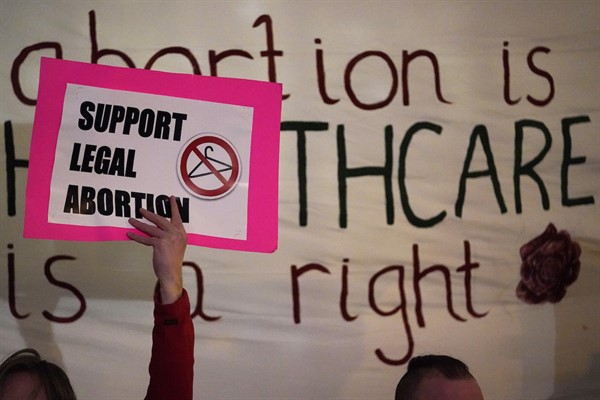Just as the U.S. Supreme Court prepared last week to hear one of the most contentious abortion cases since Roe v. Wade, which legalized the procedure in 1973, the Inter-American Court of Human Rights issued a scathing verdict on an abortion case in El Salvador. In its ruling, it held the Salvadoran government responsible for the death of a 33-year-old woman, identified only as “Manuela,” who died in prison in 2010 while serving a 30-year sentence for the “aggravated homicide” of a fetus through a miscarriage.
El Salvador strictly enforces one of the world’s most draconian anti-abortion laws. At a different time, its shocking treatment of women who—intentionally or not—fail to carry a fetus to term might be seen as a rare and exceptional human rights violation. But today, the experiences of Salvadoran women resonate well beyond the country’s borders, including in the United States, where many believe the campaign to restrict abortion rights will soon achieve its aim through a favorable Supreme Court decision. The two court cases are a reminder not only of how often women’s rights are crushed in the name of defending the lives of the unborn, but also of the extremes to which the logic that life begins at conception can ultimately lead.
The IACHR case goes back to 2008, when Manuela inexplicably collapsed, and her family, fearing something terrible was happening, called an ambulance. In the hospital, doctors found that Manuela was suffering from a potentially life-threatening case of postpartum preeclampsia, a rare condition marked by uncontrolled hypertension after delivering a baby. Since Manuela was no longer pregnant and did not have a baby with her, the doctors assumed she’d had an abortion, and they went to the police. Manuela was handcuffed to her hospital bed, while police swarmed her family home, where they found the dead newborn.

